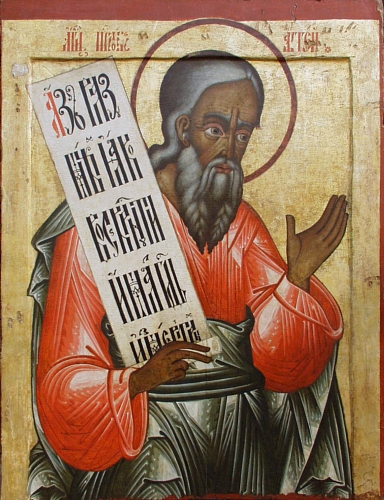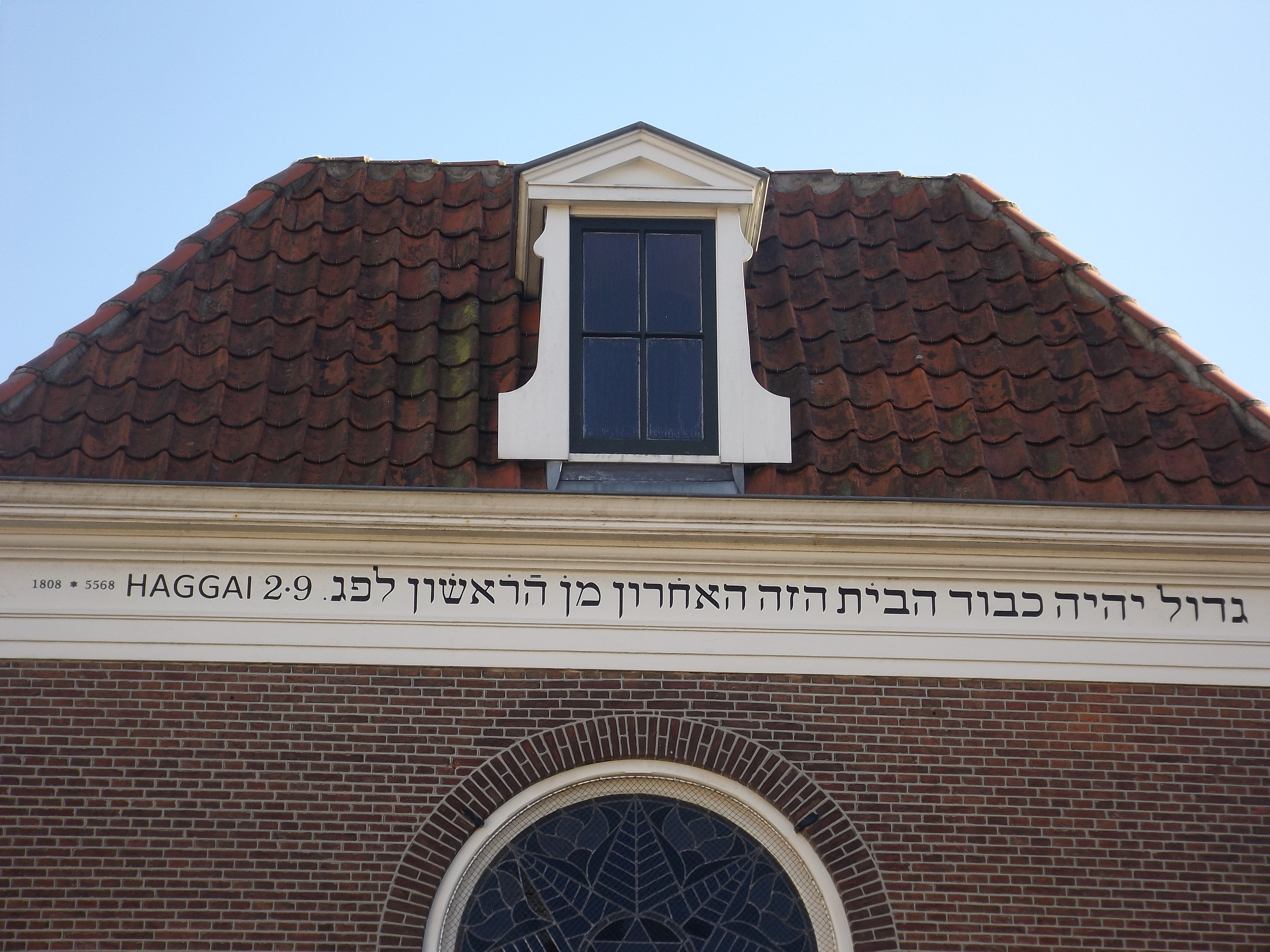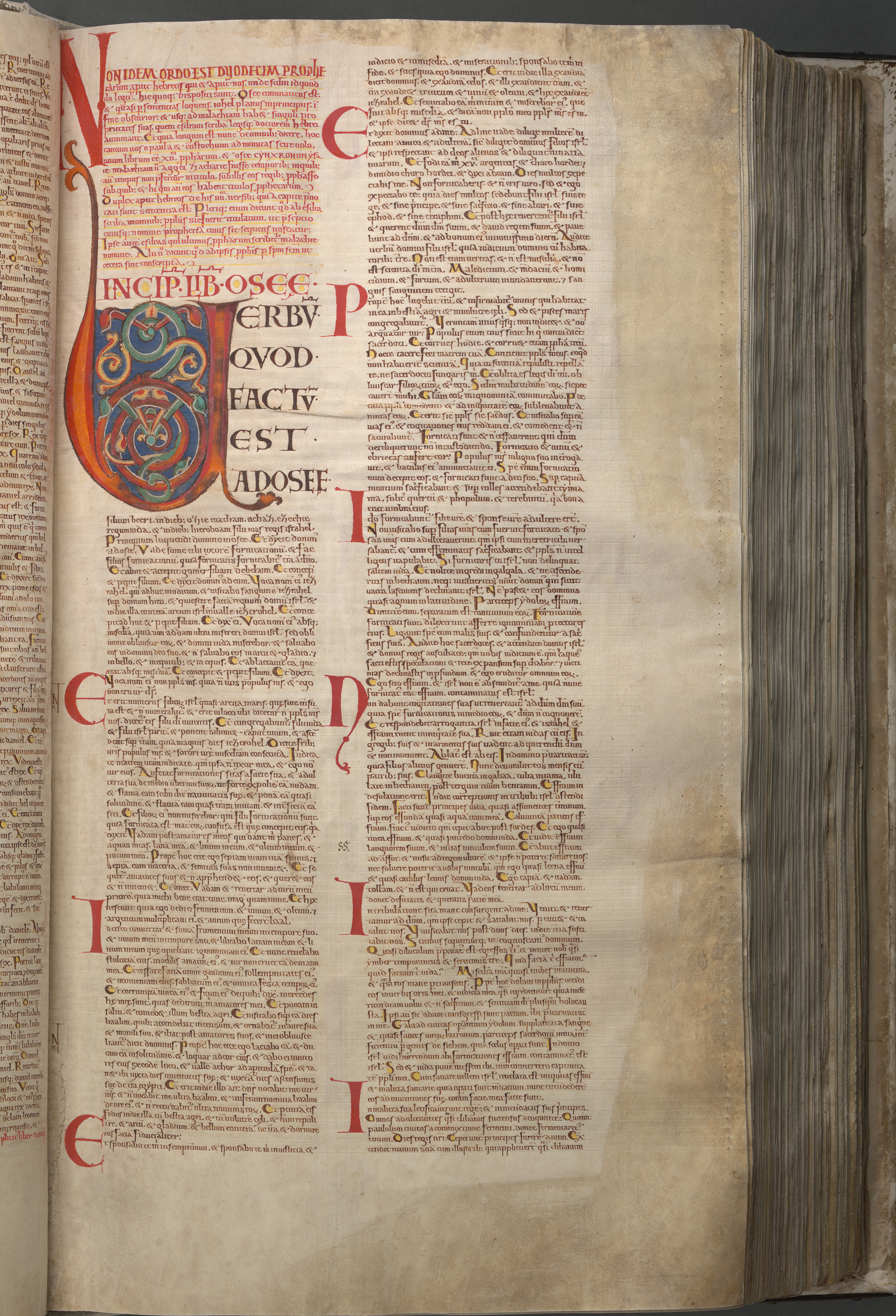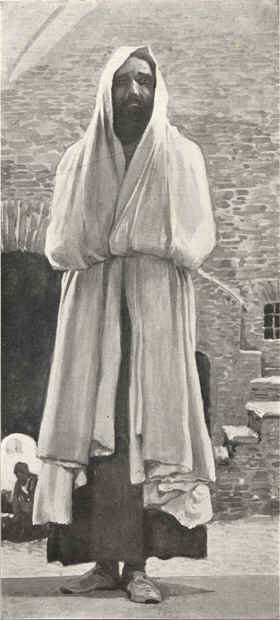|
Haggai
Haggai (; he, חַגַּי – ''Ḥaggay''; Koine Greek: Ἀγγαῖος; la, Aggaeus) was a Hebrew prophet during the building of the Second Temple in Jerusalem, and one of the twelve minor prophets in the Hebrew Bible and the author of the Book of Haggai. He is known for his prophecy in 520 BCE, commanding the Jews to rebuild the Temple. He was the first of three post-exile prophets from the Neo-Babylonian Exile of the House of Judah (with Zechariah, his contemporary, and Malachi, who lived about one hundred years later), who belonged to the period of Jewish history which began after the return from captivity in Babylon. His name means "my holidays." The name Haggai, with various vocalizations, is also found in the Book of Esther, as a eunuch servant of the Queen. Life Scarcely anything is known of his personal history, with the book of Haggai offering no biographical details about his ancestry or anything else in his life outside the prophecies of 520 BCE. Hagga ... [...More Info...] [...Related Items...] OR: [Wikipedia] [Google] [Baidu] |
Book Of Haggai
The Book of Haggai (; he, ספר חגי, Sefer Ḥaggay) is a book of the Hebrew Bible or Tanakh, and is the third-to-last of the Twelve Minor Prophets. It is a short book, consisting of only two chapters. The historical setting dates around 520 BC before the Temple had been rebuilt. The original text was written in Biblical Hebrew. Authorship The Book of Haggai is named after the prophet Haggai whose prophecies are recorded in the book. The authorship of the book is uncertain. Some presume that Haggai wrote the book himself but he is repeatedly referred to in the third person which makes it unlikely that he wrote the text: it is more probable that the book was written by a disciple of Haggai who sought to preserve the content of Haggai's spoken prophecies. There is no biographical information given about the prophet in the Book of Haggai. Haggai's name is derived from the Hebrew verbal root ''hgg'', which means "to make a pilgrimage." W. Sibley Towner suggests that ... [...More Info...] [...Related Items...] OR: [Wikipedia] [Google] [Baidu] |
Zerubbabel
According to the biblical narrative, Zerubbabel, ; la, Zorobabel; Akkadian: 𒆰𒆍𒀭𒊏𒆠 ''Zērubābili'' was a governor of the Achaemenid Empire's province Yehud Medinata and the grandson of Jeconiah, penultimate king of Judah. Zerubbabel led the first group of Jews, numbering 42,360, who returned from the Babylonian captivity in the first year of Cyrus the Great, the king of the Achaemenid Empire.' The date is generally thought to have been between 538 and 520 BC. Zerubbabel also laid the foundation of the Second Temple in Jerusalem soon after. In all of the accounts in the Hebrew Bible that mention Zerubbabel, he is always associated with the high priest who returned with him, Joshua (Jeshua) son of Jozadak (Jehozadak). Together, these two men led the first wave of Jewish returnees from exile and began to rebuild the Temple. Old Testament theologian John Kessler describes the region of Judah as a small province that contained land extending 25 km from Jerusal ... [...More Info...] [...Related Items...] OR: [Wikipedia] [Google] [Baidu] |
Minor Prophets
The Minor Prophets or Twelve Prophets ( he, שנים עשר, ''Shneim Asar''; arc, תרי עשר, ''Trei Asar'', "Twelve") ( grc, δωδεκαπρόφητον, "the Twelve Prophets"), occasionally Book of the Twelve, is a collection of prophetic books, written between about the 8th and 4th centuries BC, which are in both the Jewish Tanakh and Christian Old Testament. In the Tanakh, they appear as a single book, (''"The Twelve"''), which is the last book of the Nevi'im, the second of three major divisions of the Tanakh. In the Christian Old Testament, the collection appears as twelve individual books, one for each of the prophets: the Book of Hosea, Joel, Amos, Obadiah, Jonah, Micah, Nahum, Habakkuk, Zephaniah, Haggai, Zechariah, and Malachi. Their order, and position in the Old Testament, varies slightly between the Protestant, Catholic and Eastern Orthodox Bibles. The name "Minor Prophets" goes back apparently to St. Augustine, who distinguished the 12 shorter prophetic bo ... [...More Info...] [...Related Items...] OR: [Wikipedia] [Google] [Baidu] |
Great Assembly
According to Jewish tradition the Men of the Great Assembly ( he, כְּנֶסֶת הַגְּדוֹלָה) or Anshei Knesset HaGedolah (, "The Men of the Great Assembly"), also known as the Great Synagogue, or ''Synod'', was an assembly of 120 scribes, sages, and prophets, in the period from the end of the biblical prophets since the early Second Temple period (which started around 516 BCE) to the early Hellenistic period (which began with Alexander's conquests of 333–332 BCE). It comprised such prophets as Haggai, Zechariah, Malachi (who is identified with Ezra), Daniel, Hananiah, Mishael, Azariah, Nehemiah b. Hachaliah, Mordechai and Zerubbabel b. Shealtiel, among others. Sometimes, the Great Assembly is simply designated as "Ezra and his court of law" (''Beit Din''). Among the developments in Judaism that are attributed to them are the fixing of the Jewish biblical canon, including the Book of Ezekiel, Daniel, Esther, and the Twelve Minor Prophets; the introduct ... [...More Info...] [...Related Items...] OR: [Wikipedia] [Google] [Baidu] |
Malachi
Malachi (; ) is the traditional author of the Book of Malachi, the last book of the Nevi'im (Prophets) section of the Tanakh. According to the 1897 '' Easton's Bible Dictionary'', it is possible that Malachi is not a proper name, as it simply means "messenger".Malachi' at the Easton's Bible Dictionary The editors of the 1906 '' Jewish Encyclopedia'' implied that he prophesied after Haggai and Zechariah and speculated that he delivered his prophecies about 420 BC, after the second return of Nehemiah from Persia, or possibly before his return. No allusion is made to him by Ezra, however, and he does not directly mention the restoration of the Second Temple. Name Because the name ''Malachi'' does not occur elsewhere in the Hebrew Bible, some scholars doubt whether it is intended to be the personal name of the prophet. The form ''mal'akhi'' (literally "my ''malakh''") signifies "my messenger"; it occurs in Malachi 3:1 (compare to Malachi 2:7, but this form would hardly be appr ... [...More Info...] [...Related Items...] OR: [Wikipedia] [Google] [Baidu] |
Joshua The High Priest
Joshua ( ''Yəhōšūa‘'') or Yeshua ( ''Yēšūaʿ'') the High Priest was, according to the Bible, the first person chosen to be the High Priest for the reconstruction of the Jewish Temple after the return of the Jews from the Babylonian Captivity (See and in the Bible). Life Joshua son of Jozadak served as High Priest ca. 515–490 BCE in the common List of High Priests of Israel. This dating is based on the period of service at age 25–50 (per Numbers ) rather than age 30–50 (per ). The biblical text credits Joshua among the leaders that inspired a momentum towards the reconstruction of the temple, in Ezra . Later some of his sons and nephews are found guilty of intermarriage. Facts concerning the later part of Joshua's life are in part dependent upon whether Joshua was still alive at the time of his appearance in a vision seen by Zechariah. If the vision relates to Nehemiah's cleansing of the temple in then the engagement of Joshua's great-great-grandson to th ... [...More Info...] [...Related Items...] OR: [Wikipedia] [Google] [Baidu] |
Second Temple
The Second Temple (, , ), later known as Herod's Temple, was the reconstructed Temple in Jerusalem between and 70 CE. It replaced Solomon's Temple, which had been built at the same location in the United Kingdom of Israel before being inherited by the Kingdom of Judah in and then destroyed by the Neo-Babylonian Empire during the Babylonian siege of Jerusalem in . Construction on the Second Temple began some time after the Neo-Babylonian Empire was conquered by the Achaemenid Persian Empire; it followed a proclamation by Persian king Cyrus the Great (see Edict of Cyrus) that ended the Babylonian captivity and initiated the return to Zion. In Jewish history, the Second Temple's completion in Persian Judah marks the beginning of the Second Temple period. According to the Bible, the Second Temple was originally a relatively modest structure built by Jews who had returned from exile in Babylon under the authority of Persian-appointed governor Zerubbabel, the grandson of penulti ... [...More Info...] [...Related Items...] OR: [Wikipedia] [Google] [Baidu] |
Darius I
Darius I ( peo, 𐎭𐎠𐎼𐎹𐎺𐎢𐏁 ; grc-gre, Δαρεῖος ; – 486 BCE), commonly known as Darius the Great, was a Persian ruler who served as the third King of Kings of the Achaemenid Empire, reigning from 522 BCE until his death in 486 BCE. He ruled the empire at its territorial peak, when it included much of Western Asia, parts of the Balkans (Thrace– Macedonia and Paeonia) and the Caucasus, most of the Black Sea's coastal regions, Central Asia, the Indus Valley in the far east, and portions of North Africa and Northeast Africa including Egypt (), eastern Libya, and coastal Sudan. Darius ascended the throne by overthrowing the legitimate Achaemenid monarch Bardiya, whom he later fabricated to be an imposter named Gaumata. The new king met with rebellions throughout his kingdom and quelled them each time; a major event in Darius' life was his expedition to subjugate Greece and punish Athens and Eretria for their participation in the Ionian Revolt. ... [...More Info...] [...Related Items...] OR: [Wikipedia] [Google] [Baidu] |
Hebrew Bible
The Hebrew Bible or Tanakh (;"Tanach" '' Random House Webster's Unabridged Dictionary''. Hebrew: ''Tānāḵh''), also known in Hebrew as Miqra (; Hebrew: ''Mīqrā''), is the canonical collection of Hebrew scriptures, including the Torah, the |
Zechariah (Hebrew Prophet)
Zechariah ''Zakariya''' or ''Zakkariya''; el, Ζαχαρίας ''Zakharias''; la, Zacharias. was a person in the Hebrew Bible traditionally considered the author of the Book of Zechariah, the eleventh of the Twelve Minor Prophets. Prophet The Book of Zechariah introduces him as the son of Berechiah, the son of Iddo. The Book of Ezra names Zechariah as the son of Iddo, but it is likely that Berechiah was Zechariah's father, and Iddo was his grandfather. His prophetical career probably began in the second year of Darius the Great, king of the Achaemenid Empire (520 BCE). His greatest concern appears to have been with the building of the Second Temple. Possible allusion by Jesus He was probably not the "Zacharias" mentioned by Jesus in the Gospel of Luke and the Gospel of Matthew, "from the blood of innocent Abel to the blood of Zacharias the son of Barachiah, whom you murdered between the sanctuary and the altar". Jesus' words are interpreted as: from the first victim of a ... [...More Info...] [...Related Items...] OR: [Wikipedia] [Google] [Baidu] |
Jerusalem
Jerusalem (; he, יְרוּשָׁלַיִם ; ar, القُدس ) (combining the Biblical and common usage Arabic names); grc, Ἱερουσαλήμ/Ἰεροσόλυμα, Hierousalḗm/Hierosóluma; hy, Երուսաղեմ, Erusałēm. is a city in Western Asia. Situated on a plateau in the Judaean Mountains between the Mediterranean and the Dead Sea, it is one of the oldest cities in the world and is considered to be a holy city for the three major Abrahamic religions: Judaism, Christianity, and Islam. Both Israelis and Palestinians claim Jerusalem as their capital, as Israel maintains its primary governmental institutions there and the State of Palestine ultimately foresees it as its seat of power. Because of this dispute, neither claim is widely recognized internationally. Throughout its long history, Jerusalem has been destroyed at least twice, besieged 23 times, captured and recaptured 44 times, and attacked 52 times. According to Eric H. Cline's tally in J ... [...More Info...] [...Related Items...] OR: [Wikipedia] [Google] [Baidu] |
Polygamy
Crimes Polygamy (from Late Greek (') "state of marriage to many spouses") is the practice of marrying multiple spouses. When a man is married to more than one wife at the same time, sociologists call this polygyny. When a woman is married to more than one husband at a time, it is called polyandry. In contrast to polygamy, monogamy is marriage consisting of only two parties. Like "monogamy", the term "polygamy" is often used in a ''de facto'' sense, applied regardless of whether a state recognizes the relationship.For the extent to which states can and do recognize potentially and actual polygamous forms as valid, see Conflict of marriage laws. In sociobiology and zoology, researchers use ''polygamy'' in a broad sense to mean any form of multiple mating. Worldwide, different societies variously encourage, accept or outlaw polygamy. In societies which allow or tolerate polygamy, in the vast majority of cases the form accepted is polygyny. According to the ''Ethnogr ... [...More Info...] [...Related Items...] OR: [Wikipedia] [Google] [Baidu] |







.jpg)

